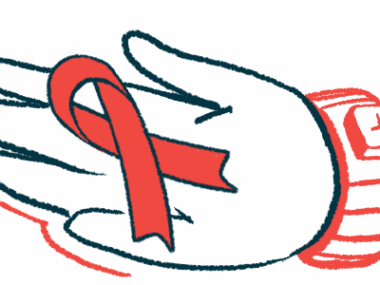Qalsody’s conditional OK for genetic cause of ALS hailed as new ‘option’
Biogen's therapy is first approved to target genetic cause of disease
Written by |

The recent conditional approval of Qalsody (tofersen) for adults with amyotrophic lateral sclerosis (ALS) who carry mutations in the SOD1 gene is a major cause for celebration, according to the Muscular Dystrophy Association (MDA).
The therapy earned accelerated approval from the U.S. Food and Drug Administration (FDA) last week, making it the first to target a genetic cause of the disease to be approved.
The organization funded early research toward developing Qalsody for SOD1-associated ALS, which is estimated to affect about 330 people in the U.S. Its approval gives people with this rare form of the disease a new “treatment option,” according to the MDA.
“The approval of Qalsody is a turning point in therapy development for ALS as it represents the first therapy to target a genetic cause of the disease,” Sharon Hesterlee, PhD, chief research officer at MDA, said in a press release from the organization. “It’s gratifying to see a strategy that we and other organizations funded substantially in earlier stages maturing into a real solution for people living with this genetic form of ALS. It represents the fulfillment of the promise of effective genetic medicines for ALS patients and their families.”
Qalsody is expected to be available to healthcare providers in the U.S. in the coming days, although its availability may vary as providers learn about it and adopt its use in their individual clinics, Biogen, the therapy’s developer, said in a press release announcing the approval.
The company has launched a patient support services program, which can be accessed on the therapy’s website. The program supports patients as part of their treatment, providing financial and insurance assistance, as well as education about the therapy.
“Since SOD1 mutations were first identified as a cause of ALS 30 years ago, the familial ALS community has been searching for genetically targeted treatments. Qalsody offers families who have lost generation after generation in the prime of their life to this devastating disease a therapy targeting the underlying cause of SOD1-ALS,” said Jean Swidler, chair of Genetic ALS & FTD: End the Legacy.
Mutations in the SOD1 gene lead to the production of a toxic form of the SOD1 protein that forms clumps and causes nerve cell damage.
Qalsody is designed to lower SOD1 levels by targeting SOD1‘s messenger RNA (mRNA) — an intermediate molecule needed for protein production — and marking it for degradation. Reducing the protein’s production should slow disease progression.
The therapy is approved at a dose of 100 mg via intrathecal injection — into the spinal canal — once a month following two initial loading doses.
What led to Qalsody’s approval?
About eight months ago, the FDA agreed to review Qalsody under its accelerated approval pathway, which lets it give conditional approval to a treatment based on early clinical trial data that indicates it’s safe and likely efficacious.
The FDA’s decision was based largely on biomarker data from the Phase 1/2/3 VALOR clinical trial (NCT02623699) and its ongoing open-label extension study (NCT03070119) that showed significant reductions in blood levels of neurofilament light chain (NfL), a biomarker of nerve cell damage.
The Phase 3 data indicated Qalsody failed to slow functional declines for patients, however, but additional data spanning the trial and the extension phase showed slower disease progression for those who’d been using it longer. Moreover, early reductions in blood NfL levels were predictive of slower functional declines.
An FDA advisory committee last month unanimously agreed these NfL level reductions were likely able to predict the treatment’s clinical efficacy, which may have supported the FDA’s ultimate approval.
Qalsody is now the first ALS therapy to be approved based on biomarker data.
“We’re excited to celebrate this milestone which brings the very first targeted treatment option to the SOD1-ALS community. This approval shows the FDA acting flexibly and progressively by using the accelerated approval pathway, innovative trial designs, and listening to the patient community to determine this treatment is safe and effective,” said Paul Melmeyer, vice president of public policy and advocacy at the MDA.
Continued Qalsody approval hinges on additional data
Qalsody’s continued approval may be contingent on additional data that supports its efficacy. Data from the ongoing Phase 3 ATLAS (NCT04856982) trial are expected to fulfill that requirement.
ATLAS is recruiting about 150 adults with SOD1 mutations associated with rapidly progressing ALS. Eligible participants will not yet have symptoms, but will show signs of nerve cell damage, reflected by high NfL levels.
Participants will be randomly assigned to receive either Qalsody (100 mg) or a placebo at the approved dosing schedule for up to two years, with the main goal being to determine whether the treatment can prevent symptoms from emerging.
Top-line data are expected in 2026. More confirmatory trials may be needed if the findings aren’t positive.
While Qalsody’s approval covers adults with SOD1-ALS, Sunny Brous, founder of SunnyStrong and an ALS patient, said the approval benefits all ALS patients.
“Any win for a subgroup of ALS is a win for the entire community,” Brous said. “We are all thankful for steps towards a cure.”






